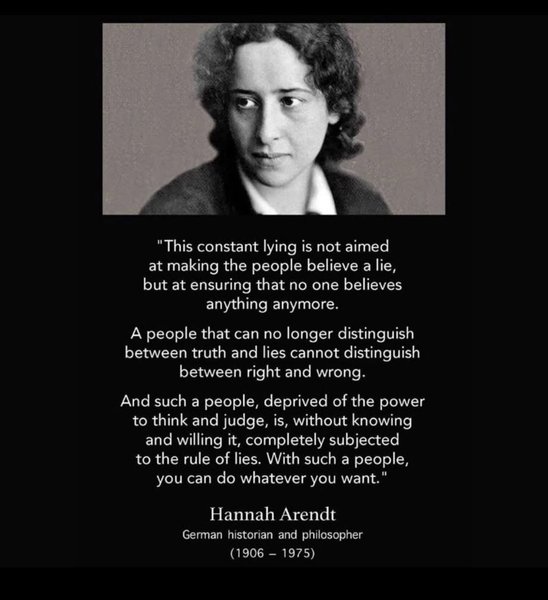Sublime
An inspiration engine for ideas
The title of Dewey’s first lecture in China was “Democratic Developments in America.” More than a thousand attended, and soon the American was being hailed as a “second Confucius.”
Peter Hessler • Other Rivers
I went back to [Hannah] Arendt’s Eichmann in Jerusalem and reread sections of it. I was looking for a clue as to what she meant by “the banality of evil,” which she defines as a “kind of thoughtlessness.” I guess I think of evil as in some way connected with self-deception. —Morris
David Shields • How We Got Here: Melville Plus Nietzsche Divided by the Square Root of (Allan) Bloom Times Žižek (Squared) Equals Bannon
When a State is threatened by serious dangers, the people frequently succeeds in selecting the citizens who are the most able to save
Alexis de Tocqueville • Democracy in America, Volume I and II (Optimized for Kindle)
Hannah Arendt’s warning that “clichés, stock phrases, standardized codes of expression and conduct have the socially recognized function of protecting us against reality, that is, against a claim on our thinking.”
Jonathan Crary • Scorched Earth: Beyond the Digital Age to a Post-Capitalist World
By a general act of will freedom of thought has been put out of function, because many give up thinking as free individuals, and are guided by the collective to which they belong. … With the sacrifice of independence of thought we have—and how could it be otherwise—lost faith in truth. Our intellectual-emotional life is disorganized. The
... See moreErich Fromm • To Have or To Be? (Continuum Impacts)
Arendt was right to assume the worst of him. In April 1933, all doubts about Heidegger were blown away when he accepted the post of rector of Freiburg University, a job that required him to enforce the new Nazi laws.
Sarah Bakewell • At the Existentialist Café: Freedom, Being, and Apricot Cocktails with Jean-Paul Sartre, Simone de Beauvoir, Albert Camus, Martin Heidegger, Maurice Merleau-Ponty and Others

It is your ability to discern facts that makes you an individual, and our collective trust in common knowledge that makes us a society. The individual who investigates is also the citizen who builds. The leader who dislikes the investigators is a potential tyrant.
Timothy Snyder • On Tyranny: Twenty Lessons from the Twentieth Century
Hannah Arendt, Agency, and the Public Space
iwm.at